#gynecocratical
Photo

#TeamQueen The Universal Gynecocratic Republic Our actions will focus on the following social areas: Cultural Promoting gynecocracy in all artistic and cultural manifestations: music, cinema, sports, theater, comics, literature, photography, sculpture, painting …feminine lips. Politics Creating political parties that defend actions focused on the empowerment of women and the promotion of gynecology in societies and centers of power around the world: parliaments, municipalities, governments Historical interpretation If history is explained by the winners, that means that there is another history. We have the duty to explain the real history since the Neolithic until nowadays. We want that when a man meets a woman he sees a goddess to adore and a mistress to obey and not a body to take advantage of, a being to exploit labor or economically, or a person to humiliate. We fight to start a revolution, Power for women. 🔗 https://gynrep.com/our-aim (at Kirkcaldy, Fife) https://www.instagram.com/p/CIDEkuJgHwB/?igshid=13fzzyol4ccvf
0 notes
Photo

Growing a Forest in a World State: Ernst Jünger on Anarcho-Tyranny
Speech by Olena Semenyaka, international secretary of National Corps, at the Scandza Forum in Stockholm on March 30, 2019.
I am very grateful to Froði Midjord for inviting me to the annual Scandza Forum, which has become a true epicenter of the Scandinavian revival.
Addressing this year’s topic of the Forum, which is “Anarcho-Tyranny,” today, especially after an unbelievable detainment of Jared Taylor and barbaric campaign launched by Facebook in order to exclude even critical examination of nationalism from a public sphere, the decrease of freedom in Western societies is the main problem which is faced by everyone wishing to initiate some changes and even simply a discussion of the latter.
Those on the Right, or Alt-Right taken broadly, often fairly consider an option of building their own networking community similar to the concept of a state within a state. In the context of new Facebook limitations, it would mean not only the creation of their own social networks (the path which has already been well-trodden by American Alt-Right) but also regular socializing, providing all kinds of assistance to each other, basically, building a paradoxical international tribe.
Such an approach, again, is natural and fair. But, to find the remedy in a long-term perspective, it’s important to determine the origins of the problem. To understand why operating within the global Western political system can be only temporary, it would be helpful to address the thought of the Third Way, the German interwar movement which has given the world names like Arthur Moeller van den Bruck, Oswald Spengler, Ernst and Friedrich Georg Jünger, Carl Schmitt, Armin Mohler and others. Having done that, we will realize that a much safer, or at least a parallel way, should consist in nothing but shaping the alternative world order. Which, again, does not cancel the entryist strategy of subverting the system from within.
Normies got used to the idea that horrors of total control are the legacy of totalitarian regimes only, whereas the brave new world born after WW2 is bad only in Huxley's and Orwell's books. The point of Ernst Jünger, who offered one of the earliest and most insightful descriptions of the coming totalitarian orders in his interwar classic treatise "The Worker. Domination and Gestalt" (1932), is that the difference between the two regimes which rivalled for the planetary domination in the 20th century and the post-war neo-liberal order, in fact, is not so striking.
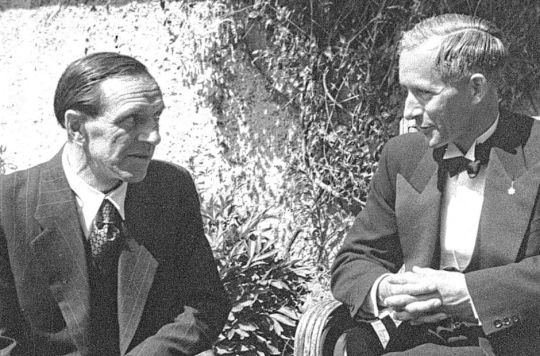
Back in the 30-s, Jünger had been observing the same developments not only in the Soviet Union and Germany but also in democratic France and Great Britain. He called this process "total mobilization" which is carried out by means of technology. And, Jünger went on to say, since the information component was growingly significant in modern wars, the states not only secretly engaged in race of arms but also had been enhancing the spheres which helped to make a society more homogeneous and uniform: sports, cinematograph, press, as a means of propaganda in particular.
Jünger traced the origins of this process back to the Napoleonic wars, which for the first time dissoluted the borderline between the lacking military and the civilians. The declining warrior estate, the last bastion of aristocracy, eventually collapsed during the WW1 due to its groundbreakingly industrial character. The soldier behind the artillery battery no longer needs to be honorable, strong or clever. He needs to be professional, that's all. The very basis for heroism breaks down. Warriors turn into workers who often don't even have an experience of direct contact with the enemy. Jünger makes it clear that heroic realism is the only attitude which is worthy of cultivating under altered conditions, and precisely stoical acceptance of the latter is what makes such an attitude "heroic."
Jünger, who occupies a very special place among the theorists of philosophy of technology, heuristically associated the latter with the mythological forces of titanism. He and his brother Friedrich Georg described in detail what it means, and their mythological and poetic metaphors, in my opinion, have a huge descriptive and explanatory value.
In terms of Ernst Jünger's philosophy of culture, the titans, chthonic creatures, rebel against the gods, Olympians, by destroying the established borders between their creations, including Oswald Spengler's creatures (beings) of the higher type: cultural-civilizational types, let alone nations, nation states and races. The only difference between the interwar and the post-war spiritual-historical situation is that the advent of industrial orders bore the mark of titan Prometheus, homo faber, basically, the principle of productivity and a merciless rational warfare, whereas the post-industrial society loses heroic voluntarism of Prometheus (who, after all, remained on the side of the gods), because now the titans have a more powerful ally: Gaia, Mother Earth herself revolting against Heaven-Uranus.
The invention of the lightening rod defending earth from heavenly fire in 1752, according to Jünger, was one of the starting points of this process. Today, Gaia covers herself with an ever denser network of cables, the true kingdom of titans producing their own fire and energies, which replaced earlier industrial gigantism. Along with the erosion of godly archetypes, species of animals and plants, flourishes genetic engineering challenging natural divine designs, as well as artificial insemination as the most obvious manifestation of the matriarchal orders’ expansion. All kinds of borders, limitations and inequality are treated with extreme irritation. Everything becomes fluid like early shape-changing sea-god Proteus, one of the enemies of Hercules, who sided with the gods against the chthonic creatures.
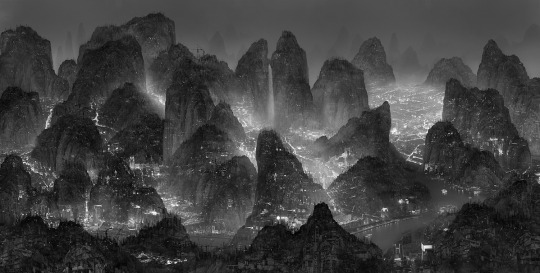
Actually, we have already heard similar ideas in this or that form, for example, Julius Evola’s take on the “gynecocratic” society, but the important difference is that Jünger describes these tendencies in neutral objective terms, firstly, because the titans also have their legitimate place in the mythological structure of the universe and resonate with some aspects of a human psyche, secondly, these tendencies are not eternal. In this respect, Jünger, like Nietzsche, was a true visionary.
For the shipwreck of Titanic, in Jünger's interpretation, was another powerful sign sent by Cassandra indicating that the reign of the titans would also soon come to an end. At the same time, it is not a matter of sequential cycles of the divine and titanic rules. According to Jünger's forecast, the titans will reign throughout the entire 21th century, but then the gods will return, casting the titans in the Tartarus again, but also completing the eventual decline of the anthropocentric history which began with WW1 as the gates through which the titans entered the historical scene. Anti-individualistic, anti-human, misanthropic totalitarian orders, in Jünger's words, are a natural outcome of a much more global metaphysical dynamics: man's giving way to the titans on the historical arena.
However, early Jünger welcomed this process as the active-nihilistical phase of Friedrich Nietzsche's transvaluation of all values which must end with the birth of new values. Superman is the conqueror of God and nothing, says Nietzsche meaning that it is about creative ruination, but also giving a hint that Nothing may be an enemy much more terrific than the old order and values.
That's why early Jünger neutralized Marxist economical reductionism by reinterpreting the Worker not as a worker estate or a proletarian class but as a new human type which is as if engraved, as if imprinted in the human material by the metaphysical and, should be added, titanical Gestalt of the Worker. The new human type assumes the features of technology: activity, dynamism, impersonality and a passion for uniform ways of behaviour. Jünger calls it the principle of work carefully distinguishing it from the moral Biblical merits of hard labours. And he welcomes the new human type replacing the "touching child of the bourgeois sentimentality," the individual. In this context, Jünger also attacks the freedom of speech and fake artistic expression.
Simultaneously, the new human type is not so much totalitarian as “superhuman”: according to Jünger, this is the new aristocracy born in the trenches of WW1. Anyway, we easily recognize the polemic with “I accuse,” Emil Zola's letter to the president of French Republic in defense of Alfred Dreyfus, Jewish officer who was charged with state treason and was also condemned by the patriotic public. Since then, criticism of the state, bureaucracy and official media from a civic point of view has been associated exclusively with the Left.
However, having received a ban on publishing in the British occupation zone right after the end of WW2 and, overall, experiencing total control in the post-war FRG, Jünger, soon enough, developed his own extremely influential third positionist criticism of the police state. Following his friend Carl Schmitt, he labeled the neo-totalitarian political system “Leviathan” and started summoning gods back. Shortly afterwards, Jünger was reintegrated into the post-war German society as a writer, participated in the German-French reconciliation ceremony in 1984 alongside German chancellor Helmut Kohl and French president Francois Mitterand and, eventually, has become a true cultural icon in Germany and beyond, but his criticism has remained unchanged.
As opposed to the interwar emphasis on the new human type, Jünger started stressing individual strategies of resisting Leviathan. Jünger documents this change of perspective in works like "Across the Line" (1950), "The Forest Passage" (1951), as well as later collection of aphorisms named "Author and Authorship" (1984). As opposed to his early attack on fake political and artistic freedom, this time, Jünger places poets and artists among other figures hated by the tyrants: the followers of religious and metaphysical teachings who don't fear death but whom the tyrants fear, friends and lovers who do not let Leviathan dissolute the personal in the public. Almost liberal ideas, as far as we see, but they are well-familiar to us in the context of discussing the model of a state within a state, the oasis in the desert of post-war nihilism, as Jünger defines this space of personal freedom. For the elephant skin of the titans still suffers from artistic stings of the muses, Jünger adds.
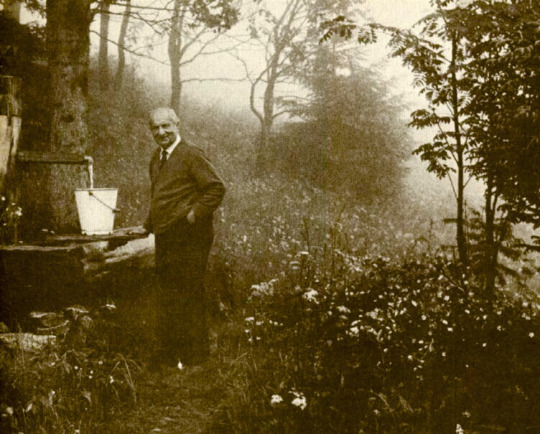
To sum up, Jünger suggests the models of a sovereign individual, first Waldgänger (the Forest Fleer), then the Anarch as the advanced version of the latter. The metaphor of the Forest and hidden forest paths leading to freedom becomes crucial for the post-war Third Way, especially in Jünger’s and Heidegger’s work. Many recognize here a reference to Tacitus’ “Germania,” and Jünger himself referred to the old Icelandic right to retreat into the forest for those who were proclaimed outlaws. In many respects, these models are as polemical with regard to the liberal (bourgeois) concept of freedom as the new human type exemplified in the Warrior and the Worker. But, as opposed to the latter, the Forest Fleer and the Anarch target not the old discredited order but Nothing itself, Nothing that not so much replaced it in all its outright omnipresence as found its way into the very heart of the new post-war order, seemingly humanist and freedom-loving.
Actually, already in 1949 futuristic dystopian novel “Heliopolis” Jünger showed that technological development wouldn't bring liberation and equality. He illustrates it in the episode about the device named phonophor, an analogue of modern smartphones with an access to the Internet, which unveiled the old deception of indirect democracy. Although all residents of Heliopolis could participate daily in internet plebiscites and questionnaires, answer “yes,” “no,” “abstain,” the right to pose questions for voting, as always, belonged to the few. Today, in the epoch of audio-visual technologies, the dystopian aspect of technology in the service of a particular political agenda consists in the filtered informational, especially online, exchange with a society: anytime, a political opponent can be announced an “extremist” and deprived of such access.
The Orwellian genre of the futuristic dystopian novel has become very symptomatic for late Jünger. 1977 novel “Eumeswil,” which is a sequel to “Heliopolis,” is a key parody of the modern society in which Jünger, conceptually, continues developing the main theme of “The Forest Passage”: liberalism has nothing to do with freedom. The main difference between the two models of a sovereign individual described in these works is that the society expelled the Forest Fleer, whereas the Anarch expelled the society from himself; as famous Jünger’s formula says, the Anarch is to the anarchist, what the monarch is to the monarchist.
A protagonist of the Anarch in the novel, historian Martin “Manuel” Venator, is also employed as a night steward at the Casbah, a fortress of Condor, the tyrant ruling over the futuristic city state Eumeswil somewhere in North Africa. As a sovereign individual, he is no enthusiastic supporter of Condor and, theoretically, could even assassinate him, but the self-stylized Anarch is even more distanced from the “opposition” in the person of advocates of what he believes to be fake freedom: anarchists “raging until they are thrust into a more rigorous straitjacket,” liberals, demagogic socialists imagining themselves the followers of Brutus. As opposed to them, the Anarch rejects not the state and power structures as such; he rejects the very foundations of the contemporary society, because, as a historian, he knows “what can be offered” (“I am an anarch – not because I despise authority, but because I need it”).
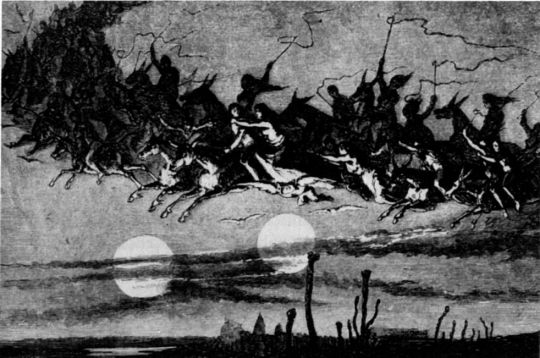
Interestingly enough, in tune with late Jünger’s frequent motif of “The Great Transition,” “Eumeswil” ends with the Great Hunt in the jungle in which participate both the narrator, Martin Venator (meaning “hunter”), and tyrant Condor. Nobody returns from this highly metaphorical “Forest Passage,” and this final conjunction of the Anarch and the tyrant, just like Jünger’s conscious collision of freedom vs. “freedom,” functions as a positive counterpart of today’s anarcho-tyranny.
In other words, the Anarch rejects only the regime of anarcho-tyranny comprised of delusional freedom and no less fake and illegitimate authorities. And we, third positionists, in no way attack freedom while attacking neo-liberalism: we attack neo-totalitarian despotism of quasi-Eastern type which currently reigns in the old West maniacally hunting thought crimes of the dissidents.
Actually, it was Oswald Spengler who for the first time clarified that the late phase of the European cultural and civilizational type, the Faustian phase, is indifferent to arts, poetry and, overall, culture. It cares about science, technology, industry, construction (not architecture as such), spatial expansion and quantitative growth in general. Spengler called it the late civilizational phase when the culture's creativity is already exhausted. Jünger reinterpreted it as the contrast between the divine and titanic reigns. Similar ideas may be found in the creativity of Rene Guenon, the founder of integral traditionalism, “The Reign of Quantity and the Signs of the Times” (1945) in particular. When the cannons sing, muses are silent, reiterated back in the days Nietzsche.
That's why, on a global scale, as pompous and surreal as it may sound, we will feel a relief only when we hasten the coming of a new metahistorical aeon. When the gods return, culture, intelligence and argumentation become important again. Yet, the very idea of expansion and voluntaristic hastening of higher cycles is titanic, Promethean, and that is also why I refer to Jünger's principled belief that man should be friends both with the gods and the titans, for he has elements of both of them.
The main lesson drawn by Jünger from WW2 was that the new orders did not bring new values and can easily coexist with nihilism. However, the reverse is also true: the Forest can grow bigger from any point of the existing titanic infrastructure, for, as Jünger persuasively shown, it is not “evil,” it’s neutral. Technology, as a mythical power, of course, is neutral not in a sense of being a mere instrument of progress and equal distribution of material goods. Experience of two world wars says that technology, above all, is a destructive, levelling power. Still, it can work both ways, for Leviathan and for the Forest, for the global state and for the rebel who does not need the mediation of the latter while addressing the society. That’s why the global political system fears popular metapolitical video bloggers so much: they defeat the modern world with its own weapons.
As Carl Schmitt observed, modern Partisan, thanks to new technological means, becomes mobile and rootless, which makes him especially dangerous for the system. Schmitt provided probably the deepest philosophical-political account of anarcho-tyranny: the global police state which denies the normal notion of the enemy, and, having demonized all opponents as enemies of humanity as such (not some contingent and particular regime like the modern Western political system), legitimizes its neo-totalitarian oppression through repeated counter-terror operations against all disagreeing. Today it happens, above all, by importing representatives of incompatible cultural values into Western societies and criminalizing the popular frustration. But certain geopolitical alternative, inspired by the modernity itself, will make the system armless.
Not incidentally, Jünger, during his stay in Paris as part of the German occupation administration, wrote a secret treatise “Peace” in which he suggested a model of the United States of Europe. Learning from Trotskyist internationals, Jünger called to develop universalism from the Right instead of reactionary, and futile, resistance to this world-historical tendency. Today, when I say that the model of a state in a state is insufficient or, more precisely, intermediate, and refer to paneuropean geopolitical doctrines and a planetary geostrategy, I mean creation of the infrastructure for the universalism from the Right within which we will be able to expand (“titanically”) without compromising our values (the “divine”).
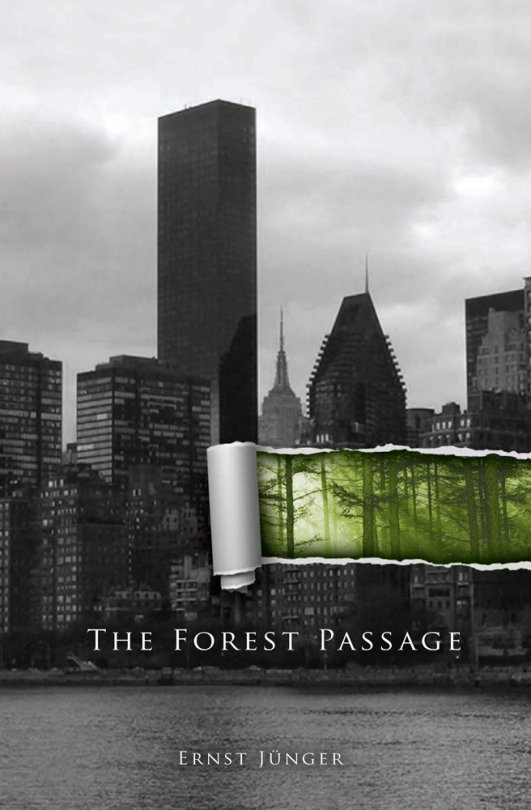
Fear of the system when it saw that networking of Alt-Right brought Donald Trump to power was enormous, although he’s a part of it. However, shutting down the public space for too many dissidents will cost too much for the system. We have to strongly "inject freedom" in the information space, in the artistic sphere as well, instead of letting it associate us with real terror acts, which, also after the 11th of September and Iraq, are used only for imposing more control on the individual, even apolitical. It does not mean that we cannot show teeth: there is enough crime, violence and injustice in the world entitling us, especially in Eastern Europe, to self-organize and claim first civic, then political, and, finally, geopolitical power to ourselves.
But the main battle lies in the individual’s relation to technology as both an alienating and a bonding power, both an instrument of dystopian totalitarian control or propaganda and an emancipating energy that does not recognize any limitations, intimately reaching people’s minds and souls like modern music and cinematograph.
In this respect, the situations in Western and Eastern European parts of the world are equal. We have to make a careful mapping of the public space to mark the territories in which the Forest can sprout out as the mythical vines of Dionysus. Illuminating social interaction, true art, liberating metaphysical teachings and practices, combined with our own geoeconomical projects, will bring down the regime of anarcho-tyranny in the blink of an eye.
#Scandza Forum#Fróði Midjord#Sweden#Olena Semenyaka#National Corps#Ukraine#Scandinavia#Anarcho-Tyranny#Ernst Jünger
0 notes